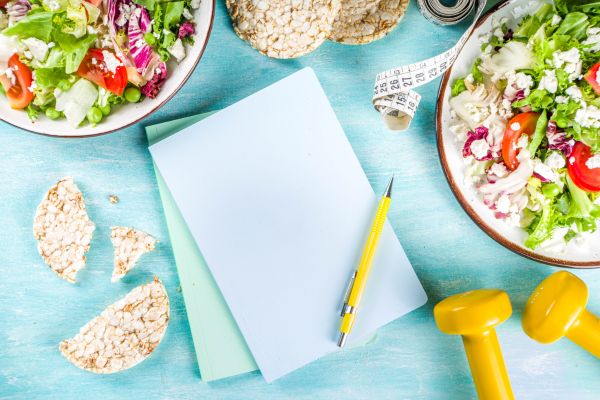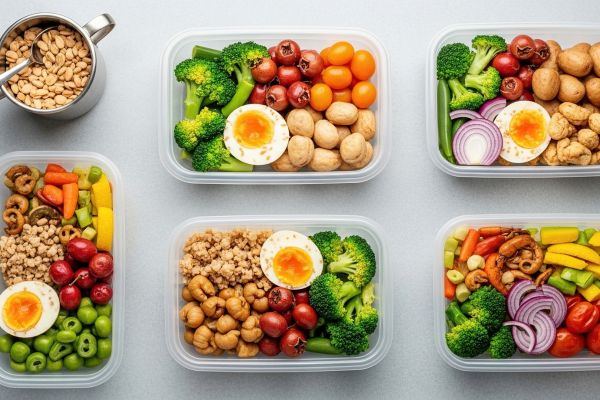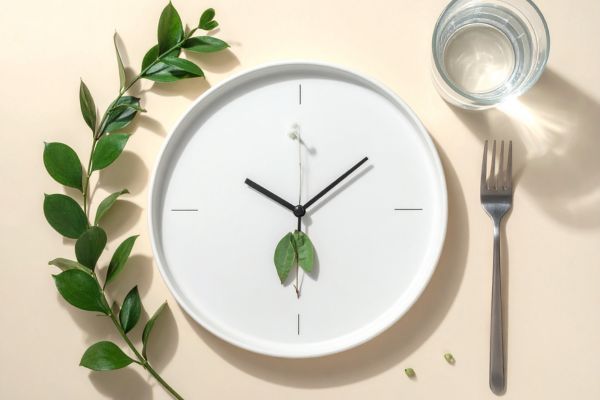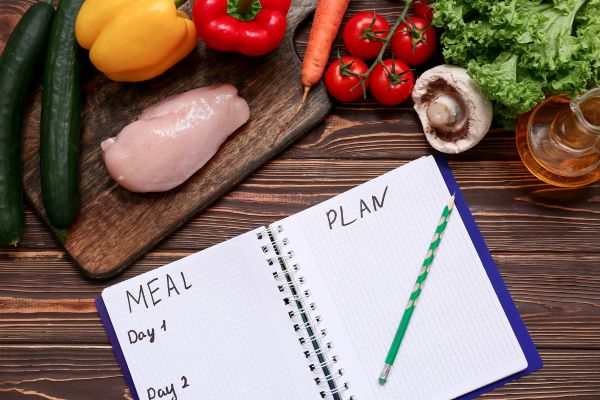Let’s be real for a second—when you think about losing weight, what’s the first thing that comes to mind? Probably hours at the gym or eating like a rabbit, right? But here’s the twist: high-protein diets for weight loss are totally shaking up the game. And honestly, it makes sense. Who wouldn’t want a plan that lets you eat real food, feel full, and still burn fat? Sounds almost too good, but stick with me. This isn’t another fad. It’s backed by science—and a whole lot of success stories.
Why Protein Steals the Spotlight
So, what’s the deal with protein? Well, protein isn’t just for bodybuilders or those buff guys at the gym gulping down shakes. Nope. It’s for anyone trying to shed some pounds without losing their sanity—or their muscle.
Here’s the thing: protein helps you feel full longer. Unlike carbs that burn off fast, protein sticks around. It also takes more energy to digest, which means your body’s working harder (and burning more calories) just to break it down. Sneaky little metabolism booster, right?
And let’s not forget about muscle. When you’re in a calorie deficit (which is pretty much the name of the game in weight loss), your body might decide to break down muscle for energy. But protein steps in like a bodyguard, protecting those gains and keeping your metabolism from crashing. Pretty cool.
How High-Protein Diets for Weight Loss Actually Work
Alright, let’s break it down without getting too science-y.
When you’re on a high-protein diet, you’re essentially shifting the focus of your meals. Instead of loading up on bread, pasta, and rice, you’re stacking your plate with foods like chicken, eggs, Greek yogurt, fish, tofu, beans, and nuts. It’s not about starving yourself or counting every bite—it’s about choosing the right kinds of fuel.
Because protein helps stabilize blood sugar and keeps hunger hormones in check, you’re less likely to raid the fridge at 11 p.m. looking for snacks. You naturally end up eating fewer calories, which leads to—you guessed it—weight loss.
Plus, your body burns more calories digesting protein compared to fat or carbs. It’s called the thermic effect of food. Basically, you’re getting a little calorie burn bonus just for eating protein. Not bad, right?
What to Eat on a High-Protein Diet
Now, you might be wondering—okay, but what does that actually look like day-to-day?
A typical high-protein day might start with some scrambled eggs or a smoothie packed with protein powder and almond butter. Lunch could be grilled chicken or lentil salad. Dinner? Maybe baked salmon with some roasted veggies on the side. Snacks? Think hard-boiled eggs, cottage cheese, or even jerky.
The key is keeping it real and enjoyable. If you hate chicken, don’t eat chicken. There are tons of options. Mix it up. You don’t need to live on shakes or bland meal preps.
The Benefits Go Beyond the Scale
Sure, high-protein diets for weight loss help you drop pounds. But it’s not just about the number on the scale.
People often notice clearer skin, more stable energy, fewer mood swings, and even better sleep. Why? Because you’re not spiking your blood sugar every few hours. You’re giving your body steady, quality fuel. That balance makes a difference.
Also, many folks find they’re able to keep the weight off long-term. That’s a big win. Crash diets usually end in rebound weight gain. But high-protein eating? It feels sustainable. It’s more of a lifestyle shift than a temporary fix.
But Is It Safe?
Let’s address the elephant in the room—because someone always says it: “Isn’t too much protein bad for your kidneys?”
Short answer? Not for most people. If you have existing kidney issues, sure, check in with your doctor. But if you’re healthy, eating a higher amount of protein isn’t dangerous. That’s an old myth that’s been debunked more times than we can count.
Also, you don’t need to go crazy. You’re not aiming for a steak at every meal. Balance matters. Combine your protein with fiber-rich veggies, healthy fats, and enough water, and you’re golden.
How Much Protein Do You Actually Need?
Here’s where things get personal. The general rule of thumb? Aim for around 0.7 to 1 gram of protein per pound of your goal body weight. So, if you’re aiming to weigh 150 pounds, try to get somewhere between 105 and 150 grams of protein daily.
It sounds like a lot, but once you get the hang of it, it’s totally doable. A scoop of protein powder can add 20 grams right off the bat. A chicken breast? Around 30 grams. You’ll be surprised how it adds up.
Challenges to Watch Out For
Let’s not pretend it’s all sunshine and grilled chicken.
Some people feel a little off when they first switch to a high-protein diet. That’s normal. Your body is adjusting. You might also get bored if you don’t mix things up. No one wants to eat the same meal every day.
And, depending on where you get your protein, things like processed meats or excessive cheese can sneak in. Keep it clean when you can. Go for lean cuts, plant-based proteins, and whole foods over stuff that comes in shiny packages.
Hydration also becomes extra important. Protein metabolism can be a bit dehydrating, so keep that water bottle nearby. You’ll feel way better when you’re properly hydrated.
Real Talk: Will You See Results?
If you stick with it? Yeah. Most people do. But here’s the honest truth—high-protein diets for weight loss aren’t magic. You still need to watch your portions and stay active. Protein is a tool. A very effective one, but not a miracle.
That said, a lot of people find it easier to stay consistent when they’re not starving or riding the sugar rollercoaster all day. Protein helps with that. It gives your body what it needs so you’re not constantly battling cravings or brain fog.
Final Thoughts
High-protein diets for weight loss aren’t just another nutrition trend—they’re a solid, sustainable way to lose fat, feel full, and stay strong. No gimmicks. No extreme restrictions. Just real food and smart choices.
At the end of the day, it’s about finding what works for you. Maybe that means going full-on high-protein, or maybe it’s just upping your intake a bit. Either way, your body will thank you.
So next time you’re wondering why your diet isn’t working, ask yourself: are you getting enough protein? If not, that simple shift might be the thing that finally clicks. You’ve got this.



